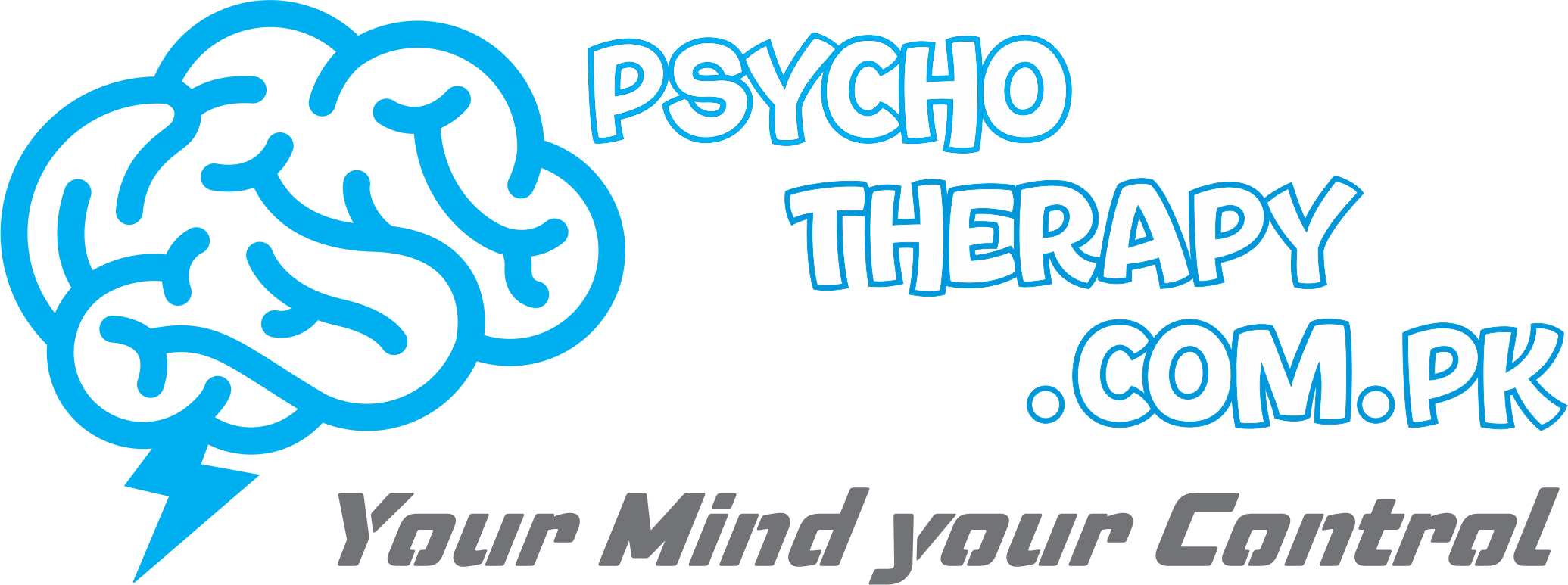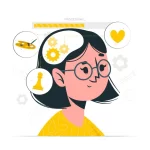Definition of Dialectical Behavior Therapy (DBT)
Dialectical Behavior Therapy (DBT) is a comprehensive and evidence-based psychotherapy that combines cognitive-behavioral techniques with mindfulness strategies. It was originally developed by psychologist Marsha M. Linehan to treat individuals with borderline personality disorder (BPD), but it has since been adapted for various mental health disorders.
DBT aims to help individuals regulate their emotions, improve their interpersonal relationships, and develop skills to manage distress and crises effectively. The therapy is structured and typically involves both individual sessions with a therapist and group sessions.
History of Dialectical Behavior Therapy (DBT)
Dialectical Behavior Therapy (DBT) was developed by Dr. Marsha M. Linehan, a psychologist, in the late 1980s. Dr. Linehan initially created DBT as a response to the challenges and limitations she encountered while trying to treat individuals with borderline personality disorder (BPD). BPD is a complex and severe mental health condition characterized by emotional dysregulation, unstable relationships, impulsive behaviors, and a high risk of self-harm or suicide.
Dr. Linehan recognized that traditional cognitive-behavioral therapy (CBT) approaches were often ineffective for individuals with BPD due to their difficulties in managing emotions and interpersonal relationships. She integrated various therapeutic techniques, including behavioral science, cognitive psychology, Zen practice, and dialectical philosophy, to create a comprehensive and more effective treatment approach.
The term “dialectical” in DBT reflects the balance between accepting an individual as they are while also encouraging and supporting changes in their thoughts, behaviors, and emotions. This balance between acceptance and change is a fundamental aspect of DBT.
The development of DBT involved rigorous research, including clinical trials and outcome studies. Dr. Linehan and her team conducted extensive research to validate the effectiveness of DBT in treating borderline personality disorder and other conditions characterized by emotional dysregulation.
Over the years, DBT has evolved and expanded beyond its initial focus on BPD to be an evidence-based treatment for various mental health disorders, including but not limited to:
- Borderline Personality Disorder (BPD)
- Substance Use Disorders
- Eating Disorders
- Mood Disorders (e.g., depression, bipolar disorder)
- Post-Traumatic Stress Disorder (PTSD)
- Self-harming behaviors and suicidal tendencies
- Suicidal ideation
DBT has gained widespread acceptance and recognition within the mental health community as an effective and versatile approach for individuals struggling with emotional regulation and related challenges. It has been adapted for use in individual therapy, group settings, and even incorporated into inpatient and outpatient treatment programs. The four primary components of DBT—mindfulness, distress tolerance, emotion regulation, and interpersonal effectiveness—have become central pillars in the treatment of emotional and behavioral issues.
Components of Dialectical Behavior Therapy (DBT)
Dialectical Behavior Therapy (DBT) consists of several core modules, each focusing on different aspects of emotional regulation, interpersonal skills, mindfulness, and distress tolerance. These modules work in harmony to help individuals manage their emotions and behaviors effectively. Here are the main types or components of DBT:
Mindfulness Skills Training:
This component involves learning and practicing mindfulness techniques to develop awareness and attention to the present moment without judgment. Mindfulness skills are essential for emotional regulation and distress tolerance.

Distress Tolerance Skills Training:
Distress tolerance skills help individuals cope with and tolerate distressing situations without resorting to harmful behaviors. Techniques include distraction, self-soothing, improving the moment, and considering pros and cons.
Emotion Regulation Skills Training:
Emotion regulation skills help individuals identify, understand, and manage their emotions in a healthy and constructive manner. This module focuses on emotional awareness, identifying triggers, reducing emotional vulnerability, and increasing positive emotional experiences.
Interpersonal Effectiveness Skills Training:
Interpersonal effectiveness skills aim to enhance communication, assertiveness, and relationship-building abilities. Clients learn how to set boundaries, express needs and desires, and navigate conflicts while maintaining self-respect and relationships.
Individual Therapy:
Individual therapy sessions provide a one-on-one therapeutic relationship between the client and the therapist. In these sessions, the client discusses their specific challenges, behaviors, and experiences, and collaborates with the therapist to develop coping strategies and set goals for treatment.
Group Skills Training:
Group sessions, led by a trained DBT therapist, provide an environment for clients to learn and practice DBT skills in a group setting. Clients share experiences, receive feedback, and offer support to one another, reinforcing the use of DBT skills.
Phone Coaching:
Clients often have access to phone coaching, allowing them to contact their therapist between sessions for guidance and support in implementing DBT skills in real-life situations. This helps bridge the gap between therapy sessions and daily life.
These components of DBT are typically integrated into a comprehensive treatment plan tailored to the individual’s specific needs and challenges. The combination of these modules addresses the multifaceted aspects of emotional regulation, self-awareness, interpersonal relationships, and crisis management. The overall goal is to help individuals build a life worth living and achieve a greater sense of emotional stability and well-being.
Strategies of Dialectical Behavior Therapy (DBT)
Dialectical Behavior Therapy (DBT) incorporates a range of techniques and strategies designed to help individuals regulate their emotions, improve interpersonal relationships, and manage distress effectively. These techniques are organized into modules that target specific areas of skill development. Here are some key techniques used in DBT:
Mindfulness Techniques:
- Mindful Breathing: Focusing on the breath to enhance awareness of the present moment.
- Observing and Describing: Practicing non-judgmental observation and description of thoughts, emotions, and sensations.
- Participating Fully: Engaging fully in the current activity, being present and mindful in the experience.
Distress Tolerance Techniques:
- Self-Soothing: Engaging in comforting and self-nurturing activities to manage distress.
- Distract with ACCEPTS: Using distracting activities to take the mind off distressing thoughts or emotions (e.g., engaging in hobbies, watching a movie).
- TIP Skills: Temperature, Intense exercise, Paced breathing, to quickly reduce emotional intensity during a crisis.
Emotion Regulation Techniques:
- Identifying and Labeling Emotions: Learning to recognize and name emotions accurately.
- Opposite Action: Acting opposite to what the emotion urges, particularly when the emotion is not appropriate for the situation.
- Check the Facts: Evaluating the validity of emotions and considering alternative perspectives to the situation.
Interpersonal Effectiveness Techniques:
- DEAR MAN: An acronym (Describe, Express, Assert, Reinforce, Stay Mindful, Appear Confident) for assertive communication and achieving goals in relationships.
- FAST Skills: An acronym (Fair, Apologies, Stick to values, Truthful) for maintaining self-respect and relationships during interpersonal interactions.
Behavioral Chain Analysis:
A structured assessment tool to analyze and understand the events, thoughts, and behaviors leading up to a specific problematic behavior. It helps identify triggers and develop strategies to prevent similar behaviors in the future.
Wise Mind:
Balancing rational thinking (Reasonable Mind) and emotional experiencing (Emotional Mind) to reach a wise and effective decision (Wise Mind) in challenging situations.
ABC PLEASE Skill:
Taking care of one’s body and mind through good nutrition, sleep, exercise, and avoiding mood-altering substances to enhance emotional regulation.
Opposite to Emotion Action:
Acting in a way opposite to what one’s current emotion is prompting, especially when the emotion is causing problems.
Building Mastery:
Engaging in activities that give a sense of achievement, competence, and mastery, boosting self-esteem and self-efficacy.
Self-Validation:
Acknowledging and accepting one’s experiences and emotions without judgment, providing comfort and reassurance to oneself.
These techniques are taught and practiced in individual therapy sessions, group skills training, and coaching, enabling individuals to acquire and apply skills to manage emotions, cope with distress, and navigate relationships effectively. The goal is to foster resilience and empower individuals to lead fulfilling lives.
Theories related to Dialectical Behavior Therapy (DBT)
The effectiveness of Dialectical Behavior Therapy (DBT) is supported by various theories and research findings that highlight its impact on mental health and well-being. Here are some key theories related to the effectiveness of DBT:
Biosocial Theory of Emotional Dysregulation:
The Biosocial Theory proposes that individuals who experience intense emotional reactions have a biological predisposition for emotional sensitivity (e.g., heightened reactivity) combined with an invalidating environment during childhood. DBT helps individuals learn emotion regulation skills to manage and respond to emotions in a healthier manner.
Cognitive-Behavioral Theory:
DBT integrates cognitive-behavioral techniques by addressing maladaptive thought patterns and behaviors. It helps individuals identify and challenge dysfunctional thoughts, beliefs, and interpretations that contribute to emotional distress and behavioral challenges.
Learning Theory and Behaviorism:
DBT incorporates principles from behaviorism, such as reinforcement and punishment, to promote behavioral change. By using reinforcement strategies, individuals are encouraged to engage in positive and adaptive behaviors, while maladaptive behaviors are discouraged through non-reinforcement or appropriate consequences.
Theory of Change through Dialectics:
The dialectical approach in DBT proposes that opposing forces, like acceptance and change, can be integrated for transformative growth. Balancing acceptance of oneself and the need for change allows individuals to make progress while simultaneously acknowledging and validating their experiences and emotions.
Experiential Avoidance Theory:
DBT addresses the tendency to avoid or suppress distressing thoughts, emotions, and experiences (experiential avoidance). By incorporating mindfulness and distress tolerance skills, DBT helps individuals become more accepting of their experiences, reducing the need for avoidance and promoting adaptive coping strategies.
Validation Theory:
Validation is a fundamental aspect of DBT. The theory suggests that validating a person’s thoughts, emotions, and experiences helps in reducing emotional suffering and increasing motivation for change. Validation enhances the therapeutic relationship and promotes a sense of understanding and acceptance.
Social Learning Theory:
DBT draws from social learning theory, emphasizing the importance of modeling, imitation, and reinforcement in the learning process. Through group sessions and skills training, individuals learn from their therapist and peers, reinforcing positive behavior change.
Self-Regulation and Affect Theory:
DBT aims to enhance self-regulation of emotions and behaviors. The theory suggests that by improving emotional regulation and distress tolerance, individuals can have better control over their responses to various situations and reduce impulsive or harmful behaviors.
Research studies and clinical trials have consistently shown the effectiveness of DBT in treating a range of mental health conditions, particularly borderline personality disorder (BPD). Its effectiveness has also been demonstrated in addressing other conditions such as substance use disorders, eating disorders, depression, anxiety, and self-harm behaviors. The integration of these theories and evidence-based practices has contributed to the success and widespread adoption of DBT as a comprehensive therapeutic approach.
Utilizations of Dialectical Behavior Therapy (DBT)
Dialectical Behavior Therapy (DBT) is a versatile and evidence-based therapeutic approach initially developed to treat individuals with borderline personality disorder (BPD). However, its effectiveness and adaptability have led to its application in a range of mental health conditions and situations. Here are the key uses of DBT:
Borderline Personality Disorder (BPD):
DBT was originally designed to treat BPD. It is highly effective in helping individuals manage intense emotions, improve impulse control, reduce self-destructive behaviors, and enhance interpersonal skills.
Self-Harm and Suicidal Behaviors:
DBT is a crucial tool in addressing self-harming behaviors and suicidal ideation. It equips individuals with skills to manage emotional crises, regulate emotions, and prevent self-destructive actions.
Substance Use Disorders:
DBT is used in treating substance abuse and addiction by helping individuals manage cravings, cope with triggers, and build distress tolerance and emotion regulation skills essential for recovery.
Eating Disorders:
DBT is effective in the treatment of eating disorders such as bulimia nervosa, binge-eating disorder, and other related conditions. It helps individuals regulate emotions, manage impulsive behaviors, and develop a healthy relationship with food and their bodies.
Depression and Anxiety Disorders:
DBT techniques, particularly mindfulness and emotion regulation, can be incorporated into the treatment of depression and anxiety disorders. It helps individuals develop coping strategies and improve emotional well-being.
Post-Traumatic Stress Disorder (PTSD):
DBT can be used to address emotional dysregulation and distress in individuals with PTSD, assisting in managing symptoms and improving overall functioning.
Chronic Pain and Illness:
DBT skills can be adapted to help individuals with chronic pain or chronic illness manage their emotional responses to pain and improve their ability to cope with ongoing health challenges.
Relationship Issues:
DBT equips individuals with skills to improve communication, assertiveness, and emotional regulation, making it useful for addressing relationship conflicts and difficulties.
Adolescent Behavioral Issues:
DBT is adapted for adolescents struggling with emotional dysregulation, self-harm, substance use, and behavioral problems. It helps them build coping skills and navigate their transition to adulthood.
Anger Management:
DBT helps individuals learn to manage anger and respond to frustrating situations in a more controlled and adaptive manner.
Work and Career Stress:
DBT can assist individuals in managing stress related to work, deadlines, and interpersonal challenges in the workplace by teaching effective coping and communication skills.

The adaptability of DBT and its focus on emotion regulation, distress tolerance, interpersonal effectiveness, and mindfulness make it a valuable therapeutic approach in a variety of clinical and non-clinical settings to enhance emotional well-being and improve overall quality of life.
Advantages of Dialectical Behavior Therapy (DBT)
Dialectical Behavior Therapy (DBT) offers a wide range of benefits for individuals struggling with emotional dysregulation, self-destructive behaviors, and difficulties in interpersonal relationships. Here are some significant benefits of DBT:
Improved Emotional Regulation:
DBT equips individuals with skills to recognize, understand, and manage their emotions effectively. This leads to a greater ability to respond to emotional triggers in a balanced and adaptive manner.
Reduced Self-Destructive Behaviors:
By focusing on distress tolerance and emotion regulation, DBT helps individuals decrease harmful behaviors such as self-harm, suicidal ideation, and substance abuse.
Enhanced Interpersonal Skills:
DBT teaches skills that improve communication, assertiveness, empathy, and conflict resolution. This contributes to better relationships and social interactions with others.
Increased Resilience and Coping Strategies:
Through mindfulness techniques and distress tolerance skills, individuals learn to cope with challenging and distressing situations, leading to increased resilience and ability to bounce back from adversity.
Balanced Decision-Making:
By incorporating the concept of Wise Mind, DBT helps individuals make balanced and well-informed decisions by integrating both logical thinking and emotional insight.
Lowered Frequency and Intensity of Crises:
DBT helps individuals develop effective coping strategies, reducing the frequency and intensity of crises they may experience.
Enhanced Quality of Life:
The skills acquired in DBT enable individuals to lead a more fulfilling and meaningful life by managing emotions, building healthy relationships, and effectively handling challenges.
Reduced Hospitalizations and Emergency Room Visits:
With improved emotional regulation and distress tolerance, individuals may experience a decrease in the need for hospitalizations or emergency room visits related to mental health crises.
Effective Stress Management:
DBT provides tools to manage stress in a healthy manner, promoting mental well-being and reducing the negative impact of stress on one’s life.
Adaptability to Change and Uncertainty:
DBT teaches individuals to be more flexible, accept change, and cope with uncertainty, empowering them to navigate life transitions more effectively.
Integration of Mindfulness into Daily Life:
The practice of mindfulness in DBT helps individuals incorporate awareness and acceptance into their daily routines, promoting a sense of centeredness and focus.
Long-Term Effectiveness:
Research indicates that the skills acquired in DBT have lasting effects, contributing to sustained improvements in mental health and overall well-being even after completing the therapy.
DBT’s holistic approach, structured format, and emphasis on a balance between acceptance and change make it a highly beneficial therapy for a wide range of mental health conditions and challenges.
Considerations of Dialectical Behavior Therapy (DBT)
When considering Dialectical Behavior Therapy (DBT), whether as a potential recipient of the therapy or as a mental health professional integrating it into practice, several important considerations should be kept in mind to ensure the therapy’s effectiveness and appropriateness:
Individual Assessment and Tailoring:
DBT should be tailored to the specific needs, goals, and circumstances of the individual. A thorough assessment should be conducted to understand the person’s unique challenges, strengths, and treatment objectives.
Multifaceted Approach:
Recognize that DBT is a multifaceted treatment that incorporates various components, including individual therapy, group skills training, phone coaching, and therapist consultation teams. All these components should be integrated for optimal outcomes.
Commitment and Engagement:
Both the therapist and the individual receiving DBT should be committed and actively engaged in the therapeutic process. Consistent attendance, practice of skills, and willingness to participate in therapy sessions are crucial for success.
Consistency and Repetition:
Consistency and repetition in learning and applying DBT skills are vital. Regular practice of skills is necessary to integrate them into daily life effectively and achieve lasting behavioral changes.
Therapeutic Alliance and Validation:
Establishing a strong therapeutic alliance and providing validation are essential in DBT. The therapist should convey empathy, understanding, and acceptance to the individual, fostering a safe and non-judgmental environment for the therapeutic process.
Safety and Crisis Management:
Safety planning and effective crisis management strategies should be in place, especially when dealing with individuals at risk of self-harm or suicidal behaviors. DBT emphasizes addressing crises and high-risk situations skillfully.
Ongoing Training and Supervision:
Therapists implementing DBT should undergo comprehensive training and ongoing supervision to ensure fidelity to the model and continued skill development. Peer consultation and support contribute to effective DBT practice.
Cultural Sensitivity and Diversity:
Considerations of cultural sensitivity and diversity are crucial in DBT. Therapists should be aware of and sensitive to cultural differences, adapting the therapy to respect and integrate individual and cultural values.
Integration with Other Treatments:
DBT can be used as a standalone treatment, but it often integrates well with other therapeutic approaches, medication management, or treatments for co-occurring disorders. A comprehensive treatment plan tailored to the individual’s needs is essential.
Assessment of Progress and Adjustments:
Regular assessment of the individual’s progress and treatment goals is crucial. Therapists should be flexible in adjusting the treatment plan based on the individual’s progress and changing circumstances.
Informed Consent and Education:
Individuals should be provided with clear information about what DBT entails, its goals, and what to expect during treatment. Informed consent is crucial to ensure a collaborative and informed therapeutic relationship.
These considerations help maximize the effectiveness of DBT, ensuring that individuals receive a structured, evidence-based approach to managing emotions, improving relationships, and enhancing overall well-being.
Process of Dialectical Behavior Therapy
The process of Dialectical Behavior Therapy (DBT) involves a structured and comprehensive approach to help individuals build a life worth living by improving emotional regulation, distress tolerance, interpersonal effectiveness, and mindfulness skills. The therapy typically consists of several stages and components:
Assessment and Treatment Planning:
The process begins with a thorough assessment to understand the individual’s specific challenges, symptoms, strengths, and goals. Assessments may include interviews, standardized questionnaires, and collaboration with other professionals. Based on this assessment, a tailored treatment plan is developed.
Orientation and Commitment:
The therapist and individual establish goals for therapy and clarify expectations. The individual commits to actively participating in the treatment process and agrees to work on specific behavioral changes.
Individual Therapy Sessions:
The individual attends regular one-on-one sessions with a DBT therapist. During these sessions, the therapist helps the individual explore and address their concerns, behaviors, and emotional struggles. They work on problem-solving, managing crises, and implementing new skills.
Group Skills Training:
The individual attends group sessions, typically once a week, to learn and practice DBT skills. The group format allows for skill acquisition, role-playing, sharing experiences, and receiving feedback from both the therapist and peers.
Skills Modules:
The core DBT skills are taught in four modules: mindfulness, distress tolerance, emotion regulation, and interpersonal effectiveness. These modules are typically covered in a specific order, building on each other to enhance emotional regulation and interpersonal skills.
Mindfulness Skills Training:
Mindfulness, a foundational skill, is introduced early in the therapy. Individuals learn to cultivate present-moment awareness, observe thoughts and feelings non-judgmentally, and practice mindful breathing and meditation.
Distress Tolerance Skills Training:
Distress tolerance skills help individuals manage crises and distress without engaging in harmful behaviors. Techniques include distraction, self-soothing, improving the moment, and radical acceptance.
Emotion Regulation Skills Training:
Individuals learn to identify, understand, and regulate their emotions. This includes recognizing and labeling emotions, reducing emotional vulnerability, and acting opposite to emotional urges when necessary.
Interpersonal Effectiveness Skills Training:
Interpersonal skills focus on improving relationships, communication, assertiveness, and conflict resolution. Skills include DEAR MAN, GIVE, FAST, and ASSERT.
Phone Coaching:
Individuals have access to phone coaching between sessions to receive guidance on applying DBT skills in real-time situations or during crises. The therapist provides support and guidance to help the individual navigate challenges effectively.
Therapist Consultation Team Meetings:
DBT therapists meet regularly in consultation teams to support one another, enhance treatment effectiveness, and address challenges in applying DBT principles.
Ongoing Assessment and Adjustment:
Progress is continuously monitored, and adjustments are made to the treatment plan as needed. The therapist and individual work collaboratively to track progress toward treatment goals and modify the approach accordingly.
The process of DBT is highly structured and involves a collaborative effort between the therapist and the individual to develop effective coping skills, manage emotions, and build a life worth living. It’s a systematic approach that fosters resilience, enhances well-being, and promotes positive behavioral changes.
What to expect with Dialectical Behavior Therapy (DBT)?
When beginning Dialectical Behavior Therapy (DBT), whether as an individual seeking therapy or as a mental health professional implementing it, understanding what to expect is important for a successful therapeutic journey. Here’s what you can generally expect during the course of DBT:
Assessment and Initial Evaluation:
The process usually begins with a thorough assessment by a mental health professional. This assessment helps determine the appropriate treatment plan and tailor DBT to your specific needs, challenges, and goals.
Discussion of Treatment Goals:
You will work with your therapist to set clear and achievable treatment goals. These goals will guide the focus of the therapy and help measure progress throughout the treatment.
Structured Sessions and Skills Training:
DBT typically involves a combination of individual therapy sessions and group skills training. Individual therapy sessions allow for personalized guidance and exploration of personal challenges, while group skills training provides a structured environment to learn and practice DBT skills.
Learning Core DBT Skills:
You will learn four main sets of skills:
- Mindfulness Skills: Techniques to enhance present-moment awareness and non-judgmental observation.
- Distress Tolerance Skills: Coping strategies to tolerate emotional distress and crisis situations without engaging in destructive behaviors.
- Emotion Regulation Skills: Techniques to identify, understand, and manage intense emotions effectively.
- Interpersonal Effectiveness Skills: Tools to improve communication, assertiveness, and relationships.
Weekly Group Skills Training Sessions:
Group sessions are typically held weekly and involve learning and practicing the DBT skills within a supportive group setting. The group allows for sharing experiences, role-playing, and receiving feedback from both the therapist and peers.
Homework and Skill Practice:
Expect to receive assignments and homework to practice the skills learned during therapy. Consistent practice is crucial for skill acquisition and integration into daily life.
Role of the Therapist and Phone Coaching:
Your therapist will provide guidance, support, and feedback throughout the process. Additionally, you may have access to phone coaching between sessions to help you apply the DBT skills effectively in real-life situations.
Targeting Behavioral Change:
DBT focuses on behavioral changes, targeting specific behaviors that hinder your quality of life. It encourages you to implement new skills to replace harmful behaviors.
Tracking Progress and Adjustments:
Progress in therapy is tracked regularly, and adjustments to the treatment plan may be made based on your progress and needs.
Focus on Validation and Non-Judgment:
DBT emphasizes a non-judgmental and validating approach, providing understanding and empathy to help you accept and manage your experiences and emotions.
Long-Term Commitment:
DBT often requires a long-term commitment to achieve lasting behavioral changes and improvements in emotional regulation and well-being.
Expect Challenges and Growth:
DBT can be challenging as it encourages you to face difficult emotions and behaviors. However, through perseverance and practice, you can experience significant personal growth and improved coping skills.
Overall, expect a structured and supportive therapeutic experience in DBT, focusing on acquiring skills to manage emotions, improve relationships, and build a more balanced and fulfilling life.










